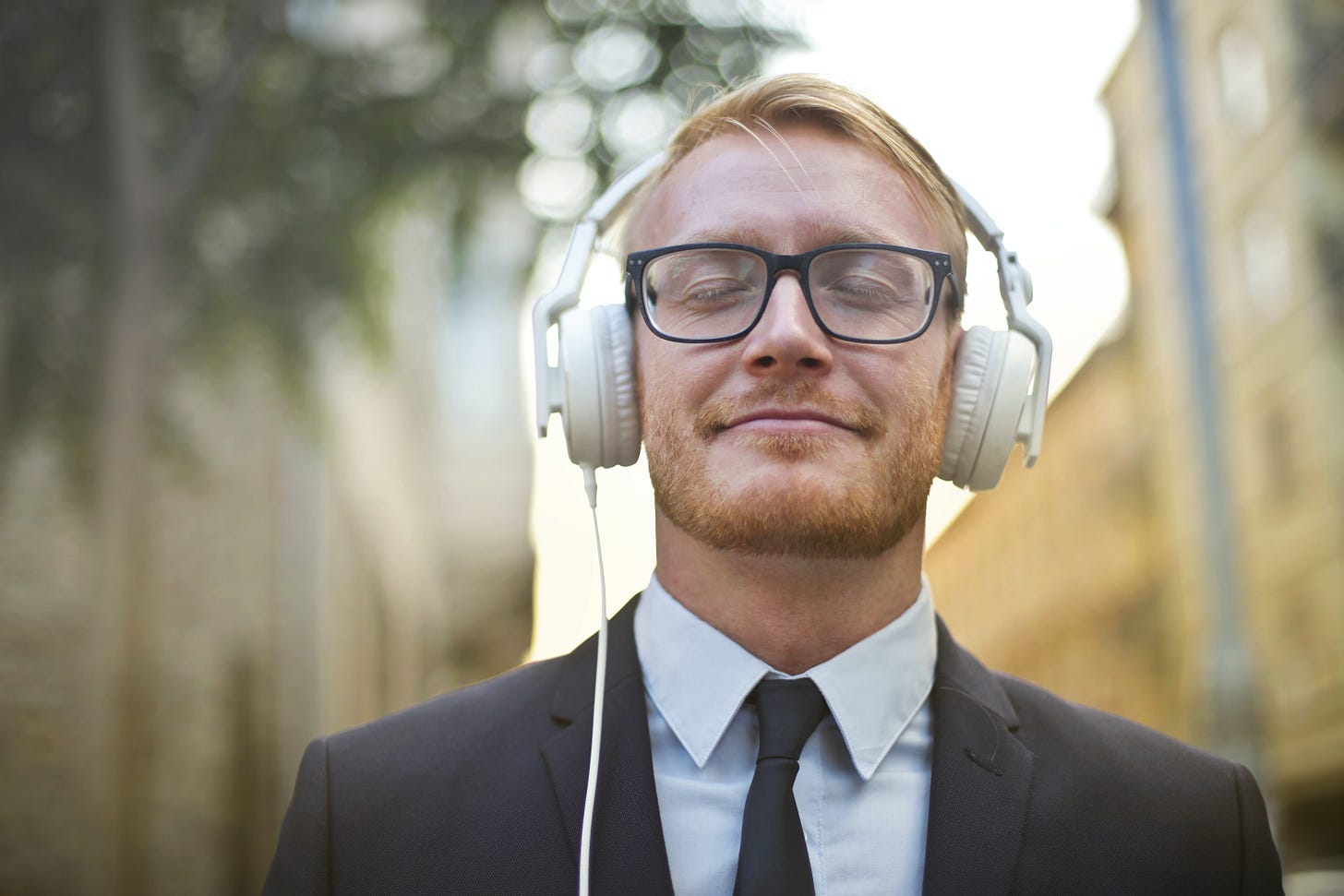(Photo by Joel Muniz on Unsplash)
With the advent of rap around the ‘80s, this musical medley of jazz, blues, and spoken-word poetry set off on a journey that is still sprouting to this day. Now rap, and its many sub-genres, are some of the most prominent on the music scene.
It goes without saying that the likes of Tupac, Eminem, and Dr. Dre (to name an impossible few from a list too long to consider) took the genre to the mainstream. In particular, Eminem and his ability to ad-lib blew the lid off what people thought was possible with freestyle. His talent to build stories through rhyme off the cuff was unrivaled and inspired multiple generations. To this day aspiring rappers have strived for Eminem’s natural flow that seems unstoppable when he’s in the zone.
Rap is one context where this control of the zone is palpable, acting almost like a superpower you can bop your head to. But what is ‘the zone’? It’s an abstract idea that will differ for everyone. For me, it means a state of intense focus or productivity. Scientifically, this ‘zone’ has been referred to as the ‘flow state’, a prominent theme in studies around sports and high-performance athletes from the ‘90s onwards. More precisely, this flow state has been defined as “the optimal psychological state to carry out an activity, being closely related to motivation and personal enjoyment” (1). One of such studies narrowed this idea down to 9 elements:
A balance between ability level and challenge; the task must be an achievable one
The automation of the task; allows fluidity and prevents intrusive thoughts
Clear goals
Direct and clear feedback
Concentration on the task at hand
Sense of control
Loss of self-consciousness or inhibition
Distortion of the sense of time
Intrinsic satisfaction produced by the task
(1)
(Photo by Andrea Piacquadio from Pexels)
Unrestricted to sports, this research - when applied to the field of music - alludes to answers to Eminem’s mastery of rhyme, with clear results found on the link between ‘flow state’ and the success of live musical performance (2).
As a self-confessed hip-hop lover, I myself relate to this musical zone, and whenever a favourite artist jumps onto shuffle, for the next 3 minutes 54 it feels like it could be me on the cover of NME. Focussed. In the moment. All before I’ve even made it to Lidl car park.
Watching videos of Harry Mack, an improv rapper from the United States, brought me to write about this topic. With nothing but a speaker and brain that was hardwired to hip-hop, his mesmerising ability has been taking the streets - and more recently online streams - by storm. With effortless word association, he raps to anything randomly thrown at him by strangers.
“Can I rap for you?” is a question that leaves many hesitant. But after he hits the play button on his portable speaker and perfectly rhymes from ‘palm tree’ to ‘lettuce’, casually doing an outfit check on the jogger running past between the two (still in rhyme), the crowds and their smiles begin to circle.
Like me and many others - Dr. Häusler, a Neuroscientist from Germany, was in awe of Mack’s ability and decided to contact him for a chat. In the enlightening interview that followed Dr. Häusler talks with Mr. Mack about how his improv skills perfectly exemplify the flow state, and how others can best achieve it. The pair discuss the role of meditation and mindfulness, which matched with the scientific literature, are proven tools acting as a sat-nav to cerebral control.
For Häusler, flow is about being in the “optimal brain state”; free from anxiety, in a balance between over-intensity and over-relaxation. Innovatively carving his way to success, Häusler’s company ‘Neuro11’ measures brain activity with electrodes to create hard data on the flow state sweet spot, catering this to each customer by decoding their own unique activity.
Alluding to partnering with big names throughout the sporting industry, including the German football league, there’s a clear appetite for companies like Neuro11. This mastery of the mind-state, driven by tangible hard data, could be the future for the practical applications of neuroscience.
Though studies largely focused on the sports industries, they note that such states can be applied to all walks of life. So, whether you fancy yourself as the next freestyle rap superstar meant for the cover of NME, or just want to perfect your blog writing, it’s clear these ideas could guide you along the way.
When considering the work of others in the field, namely Elon Musk and his Neurolink, the years to come will no doubt bring fascinating results for our understanding and mastery of this field. Maybe our flow state could be checked with the tap of an app, all thanks to Elon’s chip in our head. Let’s just hope it doesn’t turn us insane in da membrane. Insane in da brain.
References:
1 - http://citeseerx.ist.psu.edu/viewdoc/download?doi=10.1.1.1062.2100&rep=rep1&type=pdf
2 - https://journals.sagepub.com/doi/abs/10.1177/0305735611425903
Interview and Harry Mack YouTube channel:






Flow state is a wonderful place to be. We should be focusing our energy into getting into flow state! I read before, that by accessing flow states, one can massively reduce the suggested 10,000 hours required for mastery of a skill. The 10,000 hours theory was brought to light in recent years by Robert Greene but I am sure it has been around for a long time.